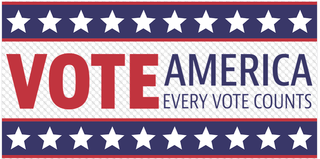Psychology
What Time Do You Plan to Vote on Tuesday, November 7?
Channel factors and the electoral process.
Posted November 5, 2017

One of the most powerful ideas from the field of scientific psychology to emerge in my mind pertains to what Ross and Nisbett (1991) refer to as “channel factors.” Channel factors are small situational factors in one’s environment that can have a major effect on behavioral outcomes. Here are some examples.
- If you want a kid to brush his or her teeth every day, you should have the toothbrush and toothpaste out on the counter next to the sink (instead of hidden away).
- If you want to make sure that people will show up to your holiday party, you should provide them with your exact address and tell them to “GPS it” and, in addition, provide them with a map to your house.
- If you want to make sure that your students will do a good job in writing their paper assignments, you should give them detailed instructions on how to write the paper and you should make the features of a quality paper crystal-clear to all involved (perhaps even providing a sample paper).
- If you want your kids to eat fruit every single day, you should keep the fruit out on the kitchen island, making it easily accessible.
A grand lesson of the field of the field of social psychology is this: Human behavior is highly malleable and is largely affected by such small channel factors. A kid who says, “I will try to eat a piece of fruit today” is going to have a better chance of following through if there is a pile of apples on the kitchen counter when she comes home from school.
Voting and Channel Factors
Of late, I have become all-out invested in engaging in our national and local political processes. As such, I think about the electoral process all the time. (I am running for a local office, county legislature in Ulster County, to represent Plattekill, New York.) And, like most candidates, I am pretty much obsessed with the process!
All of the political scientists and relatively experienced folks I am working with give guidance that sounds a lot like guidance related to channel factors. When knocking on doors of potential voters, here are some common tips:
- Ask people if they know where their polling station is (often, they don’t!).
- Ask them what time of day they plan to vote (because if they can’t answer that question, even if they fully intend to vote, they may well simply not be able to budget the time into their day on election day).
- Tell people what time the polling station is open.
- Have them verbally commit to voting (“So you are planning to go out and vote on Tuesday, November 7, right?”)
- Ask them if they need a ride to the polling station.
- Ask them if they need help with daycare on Election Day.
Election Day is coming up on November 7, 2017!
The first major national-level election since the election of 2016 is coming right up!
Think about that.
If you are a registered voter in the U.S., then, to my mind, you are extraordinarily privileged to be able to participate in the democratic process in what may be the greatest democracy to exist in the history of our people. (Sorry if this sounds biased, but hey!) Further, the more that I look into things, the more that it becomes clear that local elections matter most. The kind of change that you are likely to see on a day-to-day basis is the kind made by town boards, town supervisors, county legislatures, and the like.
What is YOUR Game Plan for Voting this Election Day?
Voter turnout in off-year elections in the USA is famously low in odd-numbered (i.e., “off-year”) elections. For instance, in 2015 in my town of Plattekill, New York, only 30 percent of registered Democrats showed up at the polls. That's pathetic!
Remember, the right to vote is an extraordinary privilege in a free society. Not exercising your right to vote, then, is a slap in the face of America. You can do better! We can do better!
What is your game plan for Election Day? What time are you planning to vote? Who will be watching your kids? Do you know where your polling station is? Do you know what time your polling station is open? Perhaps most importantly: Have you researched the candidates, issues, and the positions that are up for election this year?
Bottom Line
To my mind, the 2016 election was a game-changer. I have my own opinions on things political but to my mind, I think that everyone—every registered voter in our nation—has an obligation to go out and vote this election day. On November 7, 2017, let’s get voter turnout rates to where they should be across our nation. Let’s show the world that we appreciate being citizens in this nation. Let’s show the world that the United States of America remains an extraordinary democracy filled with knowledgeable, active, and concerned citizens. The future of our world is at stake. As tacky as this sounds, let’s do it for our children. And for our children’s children.
See you at the polls on November 7 (this Tuesday) coming up!
References
Ross, L., & Nisbett, R.E. (1991). The Person and the Situation: Perspectives of Social Psychology. New York: McGraw Hill.




